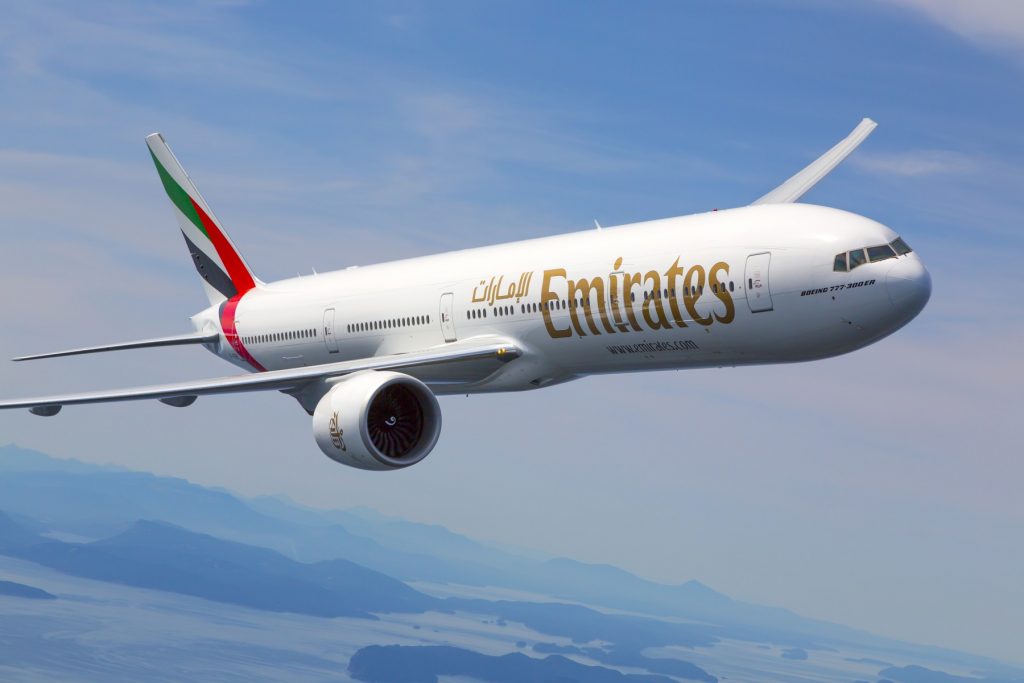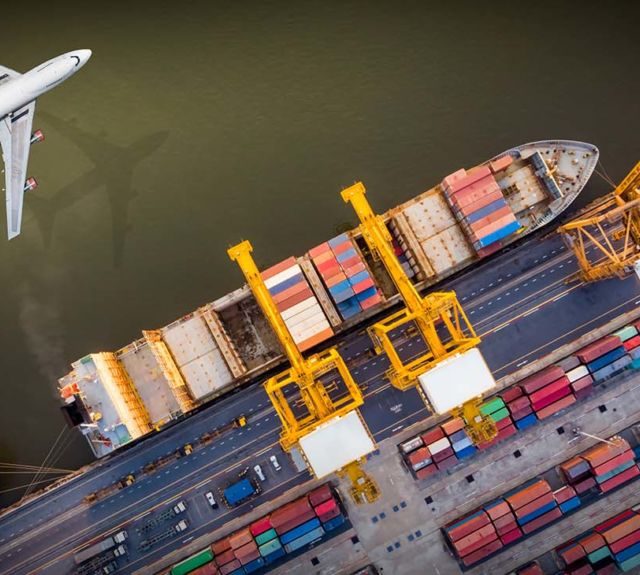Interview with Jean-Pierre Martin, General manager Emirates Belgium and Luxemburg
Q: Can you spell out the impact of the pandemic on your airline-business?
A: On 25 March, Emirates temporarily suspended all passenger flights as directed by our regulator the UAE GCAA. That hit us hard and we regret the impact on our customers, but Emirates fully supports Dubai and the UAE’s pandemic response measures, which always put people’s health and safety first.
After a thorough review of health and safety measures, the UAE authorities lifted restrictions on transit passengers on 17 June, and since then, Emirates has been gradually restoring its network connectivity. In September, we will be serving over 85 cities, with safe and convenient connections via our Dubai hub for customers travelling between the Americas, Europe, Africa, Middle East, and Asia Pacific.
We are fully focused and committed to our network, and we’re working hard to rebuild it to pre-pandemic levels in the coming months as more airports and cities reopen. We are confident in our business model and with Dubai as our hub, our proposition is as strong as ever, and Emirates will continue to lead the way in the aviation industry with superior products, service, comfort and network.
Q: How serious is this crisis for the industry? How are you coping now?
A: The effects of the COVID-19 pandemic on the aviation industry are unprecedented. The pandemic is far from over but we are all learning to cope with it – whether at a country level, within businesses and industries, or in our individual lives. As the world adjusts to the next phase of the pandemic, Emirates is optimistic that this will bring some stability for travel demand to return and economies to begin recovering.
For us, we are committed to serving our customers and we hope to resume our full complement of services and destinations as quickly and safely as the situation allows.
Q: Have there been job losses, or will there be any?
A: Like other airlines, COVID-19 has had a massive impact on our business. While we have slowly restarted operations wherever it is safe and commercially viable, our footprint today is significantly smaller than before and it will take a while for us to recover to pre-pandemic levels. Like any responsible business, we must right-size our workforce in line with our reduced operational requirements. Our people have always been a big contributing factor to our success, so this is not an action that we relish, nor one that we take lightly. We continue to take every possible action to reduce costs, restore revenue streams, and preserve jobs.
Q: What about the future? How do you see that panning out?
A: The COVID-19 crisis offers an opportunity to foster a more efficient and resilient industry which can respond better to near and long term challenges, including restoring traveler confidence and more efficient air connectivity.
We know people still want to travel and experience the world and are expecting a period of slowly rebuilding demand as travel restrictions gradually lift, and businesses and consumers gradually regain travel confidence. We have returned to 50 percent of our pre-pandemic destination network serving more than 85 destinations and offering travellers convenient connections between the Middle East, Africa, Asia Pacific, Europe and the Americas through our Dubai hub.
Our home Dubai, one of first cities worldwide to receive the “Safe Travels” stamp from the World Travel and Tourism Council, is open and remains highly attractive to international visitors.
We remain committed to serving our customers and we hope to resume our full complement of services and destinations as quickly and safely as the situation allows.
Q: Can the industry ever recover from this?
A: It is difficult to predict when the aviation industry will return to pre-pandemic levels, but most forecasts estimate it to be in 2022 or 2023. For now, Emirates remains focused on gradually and safely restoring passenger operations, while always keeping the safety of our customers, our people, and our communities as a top priority.
Q: How will the industry restore public confidence?
A: As global travel markets slowly re-open, we are gradually restarting our passenger operations around the world, always ensuring we provides customers with a safe and smooth travel experience.
We have introduced a series of industry-leading initiatives to provide customers with additional reassurance and confidence when they travel – from bio-safety measures at every step of their journey, to free COVID-19 medical cover, and flexible booking policies.
Q: Health and Safety:
As the world learns more about this new virus, we regularly review and update our hygiene and safety protocols in line with the latest guidance from the authorities and health experts. We modified our services on the ground and in the air, and put in place a multi-layered set of measures to protect our customers and colleagues at every step of the travel journey.
This includes:
- The distribution of complimentary hygiene kits containing masks, gloves, hand sanitiser and antibacterial wipes to all customers.
- All boarding agents and cabin crew on board fully kitted our in personal protective equipment (PPE).
- An additional Cabin Service Assistant on board to enhance cleaning of lavatories. Our lavatories are frequently disinfected and if the flight is longer than 1 hour 30 minutes, we add an extra member of our cabin crew dedicated to cleaning the lavatories.
- Modified service on board to reduce risk of infection.
- Throughout the flight, the air in our modern aircraft cabins is cleaned with advanced HEPA air filters as powerful as the ones used in hospitals. They remove 99.97% of viruses and eliminate dust, allergens and germs from the cabin air for a healthier and safer on-board environment. The air is fully renewed every two to three minutes. After each journey and on landing in Dubai, each aircraft will go through enhanced cleaning and disinfection processes to ensure safety and proper sanitation.
- Flexibility and assurance
Emirates’ booking policies offer customers flexibility and confidence to plan their travel. Customers who purchase an Emiratesticket by 30 September 2020 for travel on or before 30 November 2020 (this could be extended very soon, but still not official or communicated – maybe this week) , can enjoy generous rebooking terms and options, if they have to change their travel plans due to unexpected flight or travel restrictions relating to COVID-19, or when they book a Flex or Flex plus fare.
- Free, global cover for COVID-19 related costs:
Customers can now travel with confidence, as Emirates has committed to cover COVID-19 related medical expenses, free of cost, should they be diagnosed with COVID-19 during their travel while they are away from home. The airline will cover media expenses of up to EUR 150,000 and quarantine costs of EUR 100 per day for 14 days. This cover is immediately effective for customers flying on Emirates until 31 October 2020 (first flight to be completed on or before 31 October 2020), and is valid for 31 days from the moment they fly the first sector of their journey. This means Emirates customers can continue to benefit from the added assurance of this cover, even if they travel onwards to another city after arriving at their Emirates destination.

Q: What do you think of the travel restrictions such as quarantine imposed by some member states, including the UK?
A:We continue to work closely with international and local authorities to responsibly and gradually resume passenger operations. Our top priority remains the health and safety of our customers, our crew and the communities we serve.
I am pleading for coordinated approach of the travel restrictions at a European level. Today EU countries have different approaches towards travel to countries outside the EU+. Some countries allow or tolerate travel to the world, some countries like Belgium, do not allow travel outside the European borders. This has a huge impact on our operations in Brussels: although we see customers demand, leisure passengers are not allowed to travel.
From a local Belgian perspective, the zones (red, orange, green) are only defined for the EU+ countries. Any other country outside the EU+ is considered as red zone by default meaning that travel is forbidden from any Belgian airport. All non-EU countries are evaluated as red by default, without distinctions or nuances. Why could we (the Belgian competent authorities) not evaluate if travel is safe by country and apply the same intra-Europe evaluation criteria to those countries outside Europe?
As we speak, tourists are not allowed to leave Belgium to Thailand, Mauritius, Australia or…Dubai as a few examples. Should the Belgian authorities have a nuanced approach, travel to these countries or some of them might be allowed with or without restrictions, depending on the requested evaluation.
Environment – Emirates’ approach?
The Belgian boss of a major international airline has spelled out its efforts to promote sustainable travel.
Speaking to this website, Jean-Pierre Martin, General Manager Emirates Belgium and Luxemburg, said its approach was based on a three-pronged plan of action.
He said Emirates is committed to environmental stewardship and, despite the pandemic, will continue to make “progress” in the attainment of their environmental goals.
Its environmental strategy focuses efforts under three areas: reducing emissions, consuming responsibly and preserving wildlife and habitats.
He told this website, “As an airline, reducing carbon emissions is central to our strategy. We have a long-running and proactive fuel efficiency programme.”
“Our various initiatives last year resulted in a reduction in fuel consumption by 71,000 tonnes, equivalent to a reduction of 224,000 tonnes of CO2 emissions.”
“Operating modern and fuel-efficient aircraft has always been at the heart of Emirates’ business model. This ongoing, multi-billion dollar investment is our biggest commitment – not only to passenger comfort, but also to reducing our environmental impact.”
He also spoke of the travel restrictions such as quarantine imposed by some member states, including the UK, saying it will continue to work closely with international and local authorities to responsibly and gradually resume passenger operations. A Top priority remains the health and safety of customers, crew and the communities it serves.
He wants to see a coordinated approach of the travel restrictions at a European level.
Today EU countries have different approaches towards travel to countries outside the EU. Some countries allow or tolerate travel to the world, some countries like Belgium, do not allow travel outside the European borders. This, he states, has a huge impact on its operations in Brussels: although customers demand, leisure passengers are not allowed to travel.
From a local Belgian perspective, the zones (red, orange, green) are only defined for the EU countries. Any other country outside the EU is considered as red zone by default meaning that travel is forbidden from any Belgian airport. All non-EU countries are evaluated as red by default, without distinctions or nuances, he says.
He asks, “Why could we (the Belgian competent authorities) not evaluate if travel is safe by country and apply the same intra-Europe evaluation criteria to those countries outside Europe?”
Currently, tourists are not allowed to leave Belgium to, for example, Thailand, Mauritius, Australia or Dubai. Should the Belgian authorities have a “nuanced” approach, travel to these countries or some of them might be allowed with or without restrictions, depending on the requested evaluation, he said.




